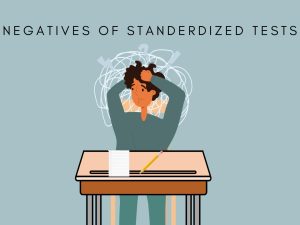Earth’s Natural Resources are Declining: We Need to Recycle and Shop Sustainably
February 28, 2022

By the year 2030, the number of cars on the road is believed to double, and by 2050, the population of people is said to reach nine billion. Now I’ll ask you, do you think we’ll be able to have nearly enough food, water, oil, coal, timber, steel, and other resources to ever support this rapid growth if we as humans keep doing things the way we currently are? Unlikely. To lessen the unfavorable effects the environment is facing in the wake of ecological exploitation, we as people need to start recycling and start shopping sustainably.
Even with Covid-19, the human population continues to grow. As it grows, climate change grows rampant, and wildlife perishes, resulting in extinctions and a decline in biodiversity. Furthermore, the extracting and processing of fossil fuels and materials alone contributes to half of the world’s greenhouse gas emissions and a 90% loss of biodiversity. If things continue in this pattern, gas emissions will likely increase 43% by 2060, and global material consumption will increase by 100 billion more tons. Essentially, humans are in desperate need of a renewable energy source and need it fast.
As humans, we exploit ecosystems all the time without even realizing it. Every year, more and more resources and ecosystems are degraded, leaving limited areas to harvest. The exploitation of ecosystems, whether by pollution or the creation of products, leads to a loss of food, a loss of water, more health hazards, and more natural disasters.
The Webster Dictionary defines recycling as the act of reusing or making a substance available for reuse for biological activities through natural processes of biochemical degradation or modification. Recycling is necessary to defend against the loss of natural resources the earth is currently experiencing. By simply placing a recyclable object in a little green bin, you are helping to limit the creation of new environmentally-unfriendly products, conserve natural resources, keep the landfills smaller, and limit the concentration of greenhouse gasses in the atmosphere.
Recycling conserves timber, water, and minerals that would otherwise go to the creation of brand new products. It also prevents pollution, saves energy, and creates many jobs for unemployed people. Recyclable items include aluminum, plastic, glass, paper, steel, and other materials. Moreover, you can help keep the environment healthy by purchasing items marked “recycled content product”, “post-consumer content”, or “recyclable product”.
Another activity beneficial to environmental health and the conservation of natural resources is sustainable shopping. To start shopping sustainably, you first need to look into what goes into the making of the product, if the product has to ship a great distance, and see if it is made from post-consumer reclaimed materials. Shopping sustainably can effectively reverse the effects greenhouse gasses are having on our society since shipping alone is accountable for 3% of the world’s carbon emissions.
Earth’s resources are in extreme decline, and we as a species need to take a stand, and recycling and shopping sustainably are great first steps to take toward that goal. We can stand up against climate change, against ecological exploitation, against wasteful behaviors. We can practice the three Rs, conserve oil and coal, and we can buy products that have been recycled. We can stand up and save the environment, all we have to do is try.









Erin Sockolof • Mar 2, 2022 at 12:07 pm
I absolutely loved this article! It was both informative and passionate. I also respect the way you expressed your opinions without blaming specific people or groups. That’s a rarity with this topic.